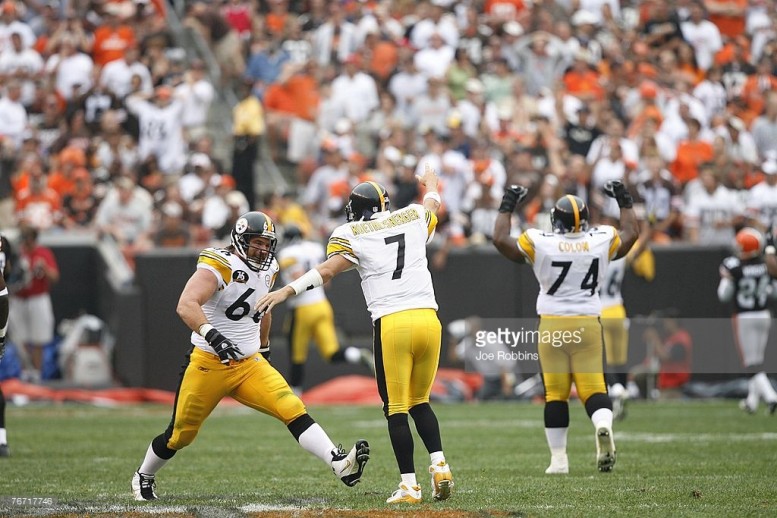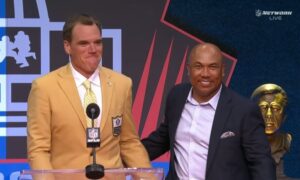Will Shields was unquestionable one of the great offensive guards of the 2000s, a dominating presence for the Chiefs during that time, during which he helped Priest Holmes score 27 rushing touchdowns in one season. Shields was a second-team guard on the All-Decade team for the 2000s, as though he needed to bona fides.
He still had to wait four years into his eligibility until he reached the Hall of Fame. And former Pittsburgh Steelers guard Alan Faneca—one of the two first-team guards on that All-Decade team—is still waiting two years into his eligibility. In fact, he didn’t even move up this year, and perhaps regressed.
This is the scenario that Clark Judge set up recently in an article advocating for Faneca’s inclusion into the Hall of Fame recently. The league itself viewed him as one of the two best guards in the league for an entire decade’s worth of time, and yet he is still waiting.
Judge points out that his candidacy did not even progress this year, as neither this year nor last year did he reach the final 10 candidates from the initial pool of 15 finalists. Yet two first-year eligible including Kevin Mawae among offensive linemen superseded him.
That does not sound as though it bodes particularly well for him, especially when you consider the fact that the other first-team guard on the 2000s All-Decade team, Steve Hutchinson, is going to be eligible for the Hall of Fame for the first time in 2018.
Shields and Larry Allen are both in the Hall of Fame, and they were the two second-team guards on the 2000s All-Decade team behind Faneca and Hutchinson. By that reckoning it would seem obvious that it is merely a matter of time before Faneca gets in.
I don’t believe that anybody is contesting whether or not Faneca is qualified to be enshrined at some point, but the issue to me is how soon he will get in. There tends to be an informal waiting list, with some positions being forced to wait more than others, and guard tends to be one of the less favored positions.
Concerning in my mind is the fact that Judge wrote Faneca’s presentation among the Hall of Fame voters hardly lasted five minutes, and was the shortest of the group. It is difficult to cite career highlights for a lineman, but this seems to me scarce.
One fact that Judge pointed out is that when Faneca signed with the Jets, their rushing game jumped from 19th in 2007 to ninth in 2008—and then first in 2009. The Steelers, meanwhile, went from third in 2007 to 23rd in 2008.
There is little question in my mind that Faneca was one of the five most qualified modern candidates worthy of the Hall of Fame this year. Many people in and around football feel the same way. I’m glad to at least see that being recognized courtesy of pieces such as the one written by Judge.








